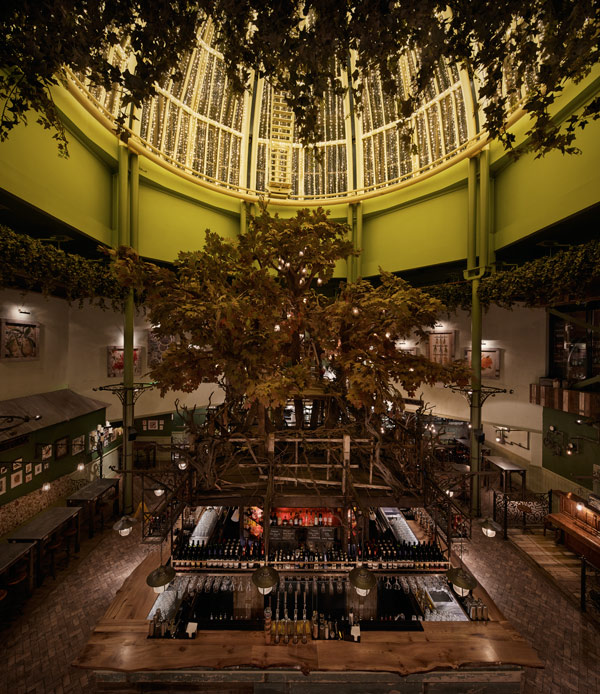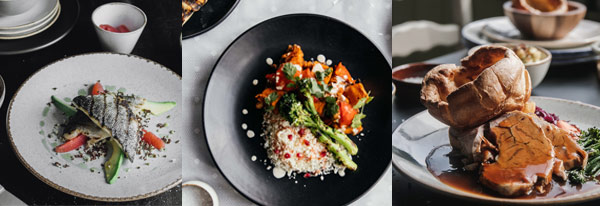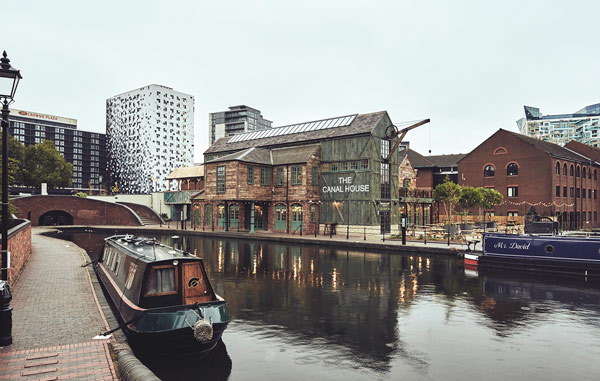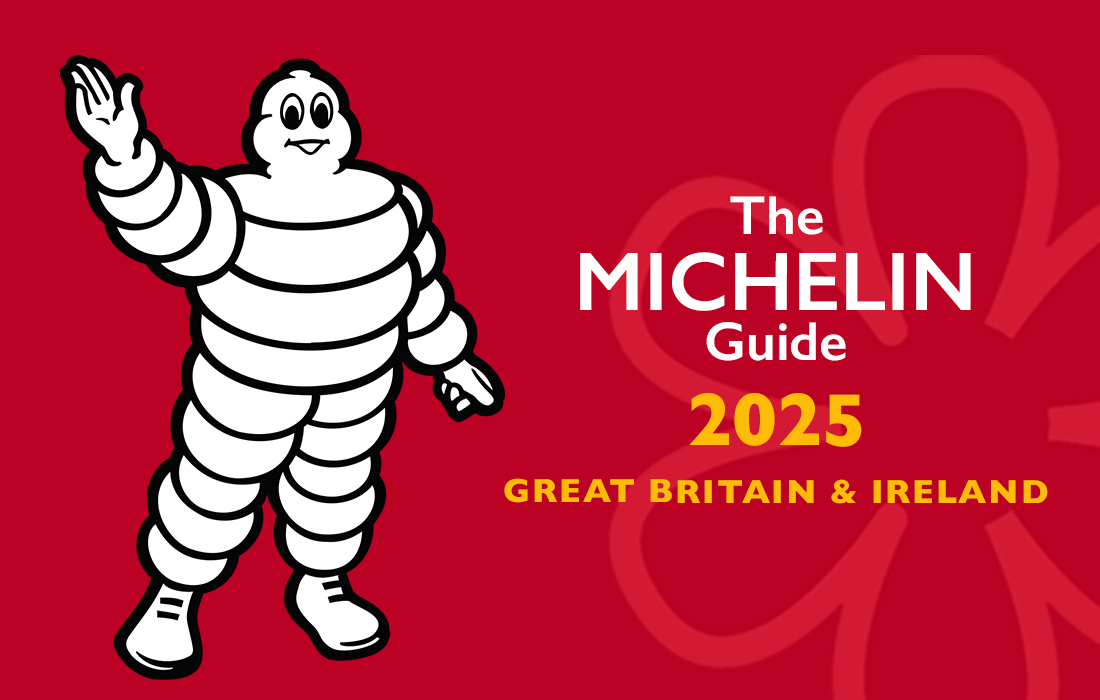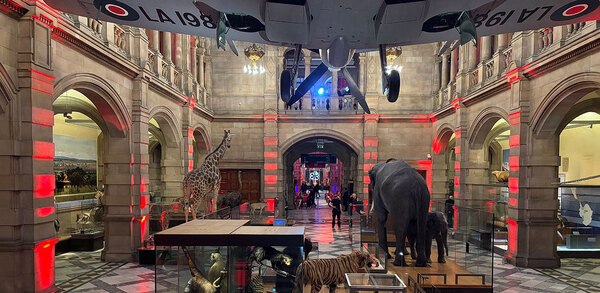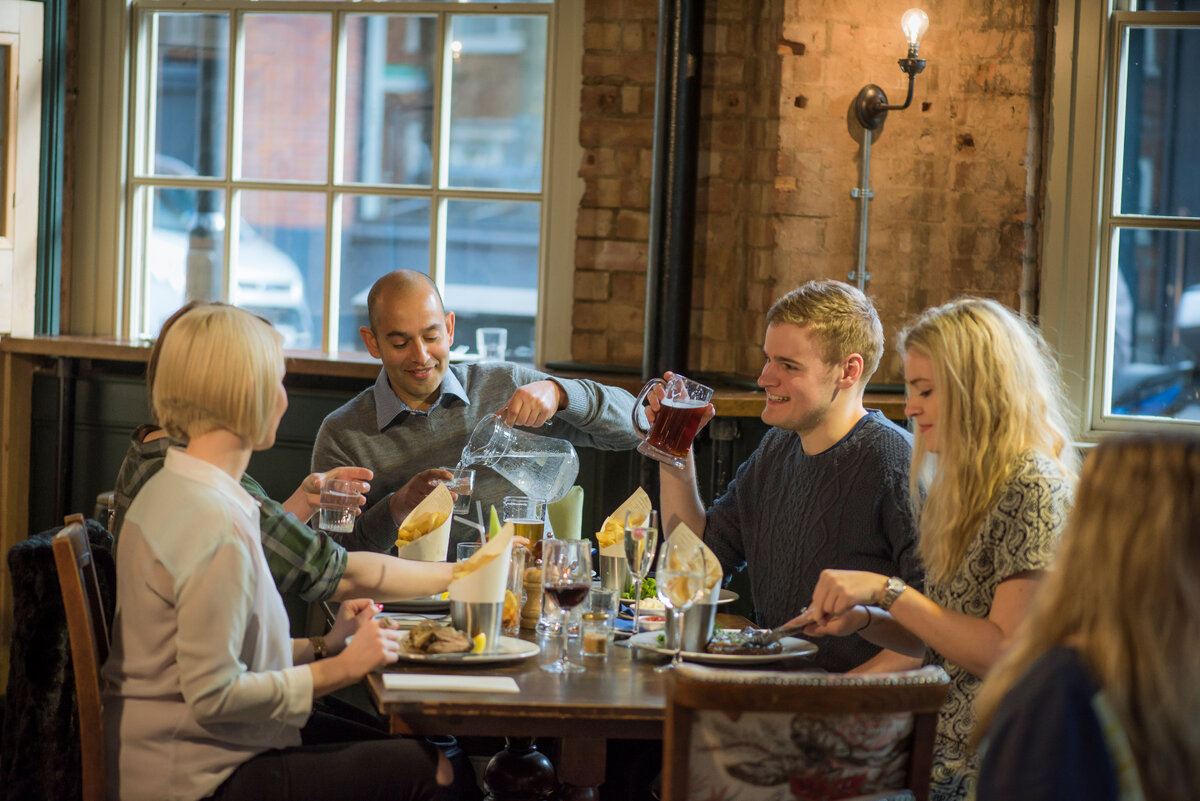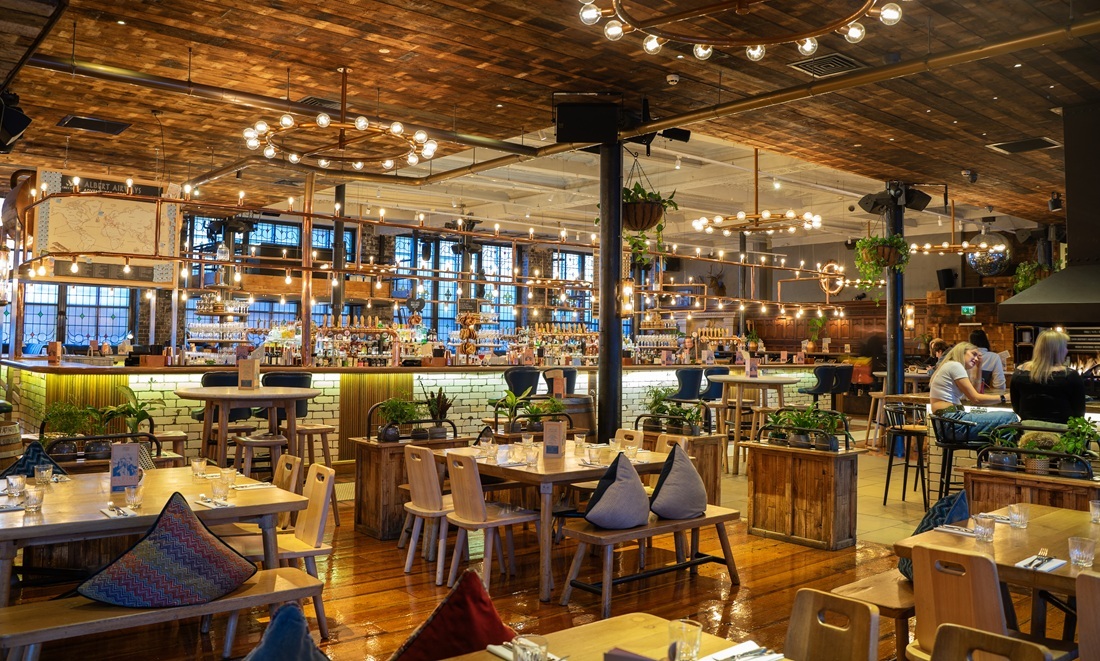The New World Trading Company – where it's always happy hour
Not only is New World Trading Company a fixture in The Sunday Times Fast Track 100 and a Catey 2017 winner, it's also just taken seventh place in the paper's list of the Best Companies to Work For. Janie Manzoori-Stamford meets chief executive Chris Hill
Sharing photos of your dog or your best Halloween costume is typically reserved for the likes of Instagram and Facebook, and yet the New World Trading Company (NWTC) has made photo sharing a vital component of its inspiring success story.
So with 21 sites across the UK, how has Hill managed to successfully engage such a large and geographically dispersed workforce? Do happy staff translate into tangible business success? And whatâs next for this ambitious company in todayâs choppy business climate?
Tribal gatherings
âYou earn points for random acts of kindness, for training people, for being mentioned in a review,â says Hill, outlining the fundamentals of the Tribes scheme. âPoints are exchanged for the good stuff.
âThe points are never for financial KPIs. If we want to incentivise a spend-per-head competition or the upselling of a certain product, there are different ways of doing it. But Tribes is pure. It canât be about whoever sells the most specials because it would lose all its magic.â
If Hill sounds almost evangelical about his unique employee engagement initiative, itâs because he is immensely proud of its success. The idea for it came to him during a soak in the bath. He wanted to avoid his workforce becoming fractured as it rapidly expanded, as well as make NWTC staff in Newcastle and Birmingham feel as part of the team as those in Manchester, Liverpool and London.
Two years on from that Archimedes moment, the scheme has a full-time employee driving it and a bespoke mobile phone app for staff to earn and award each other points, which 73% of the firmâs workforce engage with at least three times a week.
âWe also have a thing called the Marvellous Book of Benefits,â says Hill. âItâs written like a chequebook and has about 20 individual benefits for team members. Some are exclusive to certain pay levels, but most are applicable to all and you receive them from day one.â
Benefits include enhanced maternity and paternity packages, education subsidies, staff discounts and a clothing allowance for employees who are promoted.
âItâs another thread in the weave, and everyone understands theyâre in a good company,â adds Hill.
Happy hospitality staff are fantastic from a customer service point of view, but based on NWTCâs financial reports, they are also brilliant for the bottom line. The business has featured in The Sunday Times Fast Track 100 for the past three years. It expanded its sales from £4.5m during its first year of business in 2012 to £40m to 31 March 2017, while EBITDA increased from £0.2m to £3.6m over the same period. This yearâs revenue was expected to nudge the £50m mark when the reporting period closed at the end of March.
In February, the company launched a 200-seat venue in Bristol, which not only marked NWTCâs debut in the south-west of England but also the introduction of a new brand: the Florist. It will sit alongside the Botanist (the largest brand in the group with 15 sites), the Smugglers Cove, and the House brand â" the latter is a series of one-off venues including the companyâs original site, the Oast House in Spinningfields, Manchester (see below for NWTCâs full portfolio).
The thinking behind having multiple brands is that there can be more than one NWTC operation in a city â" with three being the magic number.
âUltimately, it gives us managed risk, so we donât have all our eggs in one brand basket,â explains Hill. âIt means we can have smaller brands in the business in which we can experiment products and innovations that can then be translated to the larger brands. We want to make sure weâre constantly able to offer innovative and different stories within a tight geography, such as a city centre.â
Crucial to the success of NWTCâs multi-brand offer is not just the distinct differences, but also the consistencies across the entire portfolio. Each venue has its own personality in terms of aesthetics and design, and each brand has its own bespoke cocktail and food menus.
âOther than those product variances, everything else is the same: the beer list, draught line-up, service criteria, training, back-of-house systems and supply chain,â says Hill.
The customers visiting the different operations also tend to be consistent. Hill says that by managing price points, products and the availability of live music, NWTC appeals to very similar demographics across the board â" and 70% of its trade is repeat custom.
âWe pretty much have all ages and genders, with a very small spike at around about 30- to 35-year-olds,â he adds. âBut youâre just as likely to find an 18-year-old as a 50-year-old in one of our venues.â
This broad appeal, plus carefully considered venue layouts, accounts for the description of NWTC as a âthird, third, thirdâ business.
âWeâre a third food [sales], but weâre two-thirds restaurant [space],â says Hill. âTherefore, weâre one-third food, one-third liquor at table and one-third liquor at bar. Itâs that crossover between having a really busy restaurant and having a really busy bar, which gives us an all-day eating and drinking environment with live music later on thatâs quite unique.â
Hillâs description of his business conjures up an image of well-oiled hospitality machines, with every element contributing to each operation as a whole. Itâs an approach that is likely influenced by the energetic chief executiveâs academic background in engineering.
After four years studying for a masterâs degree at the University of Nottingham, how did Hill end up as head of one of the UKâs fastest-growing restaurant and bar companies?
âI was doing a number of jobs across different days of the week while I was at uni, from kitchen portering to bartending. When I graduated in 2002, I took one of those bartending jobs full time â" and that gave me the bug.â
A year on, Hill was duty manager at Liverpoolâs Prohibition bar, which was part of the Living Ventures group. He climbed his way up the career ladder to become senior operations manager, and hungry for the next step.
âThe role was one step below board level and I was encountering a bit of a glass ceiling,â says Hill. âI was looking for the next challenge and made my desires known. The timing couldnât have been better.â
Heâs not wrong. Soon after airing his feelings with the late Tim Bacon, co-founder of Living Ventures, Hill was presented with the opportunity of a lifetime: to take the helm of the firmâs splinter business, the New World Trading Company.
Hill says he was told to run it as his own start-up, with a separate team, and to eventually find a backer to complete a management buyout. He did just that. Three years after his appointment, Hill oversaw the firmâs £44m acquisition by private equity company Graphite Capital.
While undoubtedly the driving force behind this success, he credits Living Venturesâ board for its invaluable support.
In addition to Bacon and his business partner Jeremy Roberts, a dynamic duo that took home the Group Restaurateur Catey award in 2014, Hill was able to learn from hospitality investor and non-executive board member Paul Campbell and Tim Farazmand when he was managing director of private equity firm LDC.
Today, Hill has a steady growth plan in mind. Last year, NWTC secured a further £23m of funding from NatWest that enabled it to restructure its buyout debt and fund further expansion of the group.
âWeâre expecting to open five or six sites a year over the next couple of years,â he says. âIâve got 11 sites either signed or about to be signed. The next two years are pretty much mapped out.â
Recent casualties in the casual dining market suggest a sector that does not rest on secure foundations. Jamie Oliver plans to close 12 branches of his Italian chain, Strada closed 11 sites at the start of the year, burger chain Byron has revealed plans to close 20 restaurants, and Prezzo is to shed nearly 100 outlets amid the turmoil that has hit the high street.
âI donât know the fine details of any of these companies, nor is it for me to know, but my instinct is that there were a lot of marginal sites that commanded a lot of high rents.â
Hill says a prolonged period of uncertainty driven by the Brexit vote and the subsequent general election has hampered the market.
âPeople donât know whatâs around the corner, and that impacts consumer confidence more than anything else,â he says. âI donât think itâs going to get any better any time soon, so we all just get on with it.â
By getting on with it, Hill intends to maintain the forward momentum that he and his dedicated workforce have built up. And given his track record, the future certainly looks bright for this adventurous company.
New World Trading Company brands
The Botanist
Style Designed to be a secret garden of food and drink, Botanist venues are packed with antiquities and trinkets
Locations Alderley Edge, Birmingham, Chester, Didsbury, Farnham, Knutsford, Leeds (Trinity), Manchester (Deansgate and MediaCityUK), Marlow, Newcastle, Reading, Sheffield, West Bridgford and York
Smugglers Cove
Style Waterside venue in historic surroundings aimed at anyone with a âthirst for excitement and intrigueâ
Location Albert Dock, Liverpool
The House
Style Large city centre venues with outside spaces, featuring vintage designs bespoke to the location
Locations The Canal House, Birmingham; the Club House, Liverpool One; the Trading House, City of London; the Oast House, Spinningfields, Manchester
The Florist
Style Sensory-driven, with emphasis on fragrant cocktails, floral design and live music
Locations Bristol and Liverpool (due 2018)




